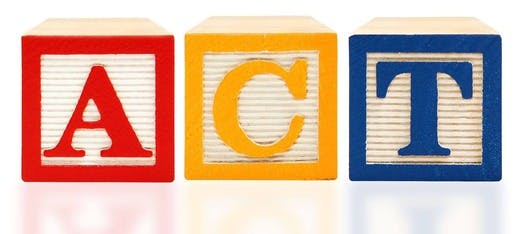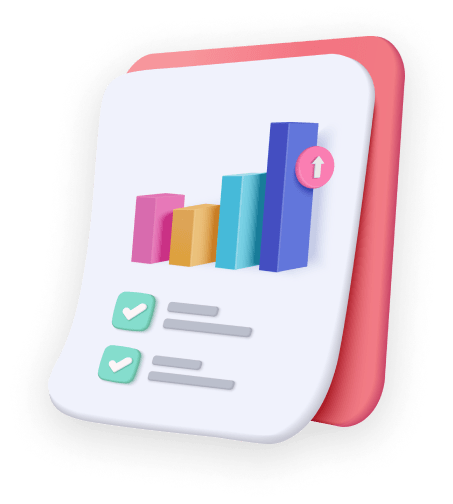What is the ACT Test?
A complete overview of the ACT test. Learn about what the ACT is, its key components, and how that affects your college admission.

Along with the SAT, the ACT test is one of the two standardized tests that is usually required when applying to American Universities. Many students contemplate on which test to take, because there are some notable differences between the two. Don’t let that make you nervous. Information is power, and we’re here to demystify the ACT test.
The ACT Test Defined
The ACT test is a standardized test developed, published, and administered by the US-based not-for-profit organization ACT, Inc. While it’s similar to the SAT test, there are important differences when it comes to the SAT versus the ACT
Your ACT score helps admissions officers establish how prepared you might be to transition into college. **The ACT test is accepted by all four-year colleges and universities in the United States, and another 225 universities worldwide.
While the ACT is valuable, it’s important to remember that your ACT score is not the only thing college admissions officers look at when considering your admission.
The Structure of ACT test
You can either take the ACT test with a good old fashioned number two pencil and paper, or on a computer. The test will be the same whichever format you choose, so there’s no advantage. The number of questions for each section and the time allotted is as below.
| Sections | English | Math | Reading | Science | Total |
|---|---|---|---|---|---|
| Questions | 75 | 60 | 40 | 40 | 215 |
| Test Time (min) | 45 | 60 | 35 | 35 | 175 |
But whether you use a pencil or a keyboard, you’ll have to do it at an official ACT test center.
What will the ACT test you on?
The ACT tests your skills in four topics: English, Math, Reading, and Science.

Start preparing for theACT today
Take a 15 minute test and get yourAnalytics Report!
English
The English section of the ACT test covers ****usage and mechanics issues like commas, apostrophes, colons, modifiers, fragments, and run-ons. You’ll also use your rhetorical skills through clarity and brevity, strategy, transitions, and organization. And you’ll need to demonstrate your ability to stylistically and grammatically construct correct sentences.
Math
The math section of the ACT test covers pre-algebra, elementary algebra, intermediate algebra, plane geometry, coordinate geometry, and elementary trigonometry. The questions are distributed differently from test to test, and they get harder the further you go.
Reading
Then comes the reading section. You’ll need to read a series of prose passages that represent common texts in a first-year college curriculum.
You’ll be assessed on your skills with:
- Key ideas and details;
- Craft and structure;
- And integration of knowledge and ideas.
Among other things, you’re going to have to determine both explicit and implicit intent, and be able to analyze the author’s voice and method.
Science
The last section of the ACT test is science. You’ll get seven passages that demonstrate data representation, research summary, and conflicting viewpoints. You’ll need to answer a series of questions for each passage.
Optional Writing Section
You do have the option of completing an essay along with the four required sections. You’ll need to write a response to a specific prompt, but there’s no particular structure required. Your essay won’t affect your score in the English section, or your overall composite score.
Less than half of all colleges require an essay score but for those that do this can fulfill that requirement, and it will factor into their assessment for admissions.
How does the ACT score work?
Each section is scored on a scale of 1 to 36, with 36 being the highest possible score. The raw score for each section is determined by counting the number of correct answers. There is no penalty for incorrect answers, so it is always better to guess than to leave a question unanswered.
After calculating the raw score for each section, the scores are scaled to ensure that scores from different test administrations are comparable. The scaled score is calculated by converting the raw score to a score on a scale of 1 to 36, using a formula that takes into account the difficulty level of the questions on that particular test. Finally, the scores for each section are averaged to determine the student's composite score, which is the overall score for the entire test. The composite score is also on a scale of 1 to 36, and it is rounded to the nearest whole number.
It's important to note that the optional writing section is scored separately from the other four sections. The writing score is based on two readers who evaluate the essay based on four domains: Ideas and Analysis, Development and Support, Organization, and Language Use and Conventions. Each domain is scored on a scale of 1 to 6, and the scores are averaged to give the final writing score on a scale of 2 to 12.
What’s a “good” score?
Admission policies vary from college to college, so there’s no universal target. But according to the ACT Assessment Student Report, these are the average composite scores generally sought by colleges or universities.
| School Type | Accepted Freshman | ACT Scores |
|---|---|---|
| Ivy Caliber schools | Average less than 1 in 8 acceptance rate | ACT scores 32–36 |
| Highly selective schools | Freshman were top 10% of their graduating class | ACT scores 27–31 |
| Selective schools | Freshman were top 25% of their graduating class | ACT scores 24–26 |
| Traditional schools | Freshman were top 50% of their graduating class | ACT scores 21–23 |
| Liberal schools | Freshman were lower 25% of their graduating class | ACT scores 18–20 |
| Open schools | All high school graduates are accepted | ACT scores 17–20, although any ACT score is likely to be accepted. |
What’s the best way to prepare for the ACT?
It’s never too soon to establish a good foundation for success with the ACT test. You can start early in your school career with these three basic habits:
- Take classes that challenge you;
- Hone your study skills and work hard;
- Make reading and writing a habit both in and out of the classroom.
But like anything, excelling at the ACT test gets easier with practice, so it’s worth taking the time to do some test prep.
Let us show you how to quickly and efficiently get prepped for your ACT test, and improve your chances of getting accepted to your dream college.
Let R. test set a smart path for you! Discover your strengths and weaknesses with R. test Let R. test set a smart path for you! Discover your strengths and weaknesses with R. test